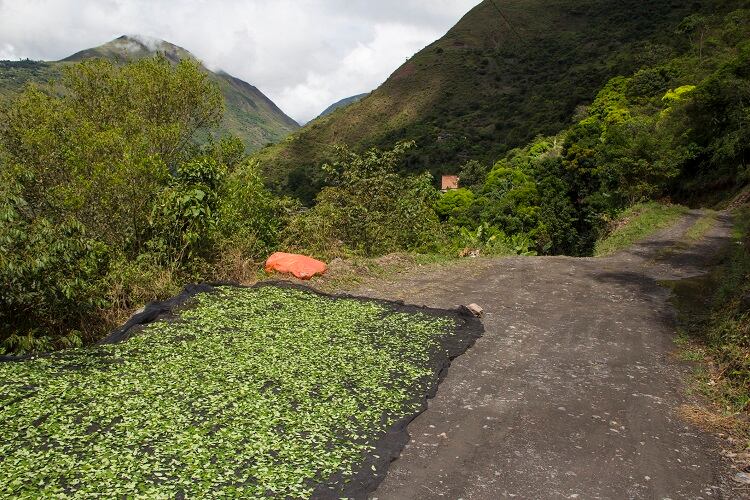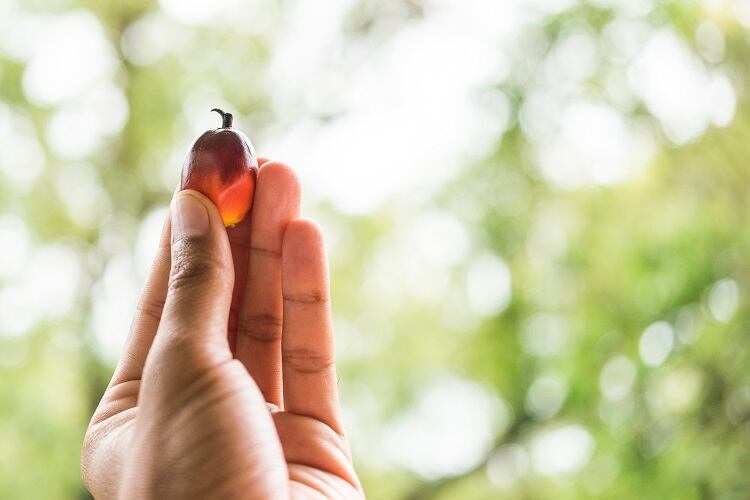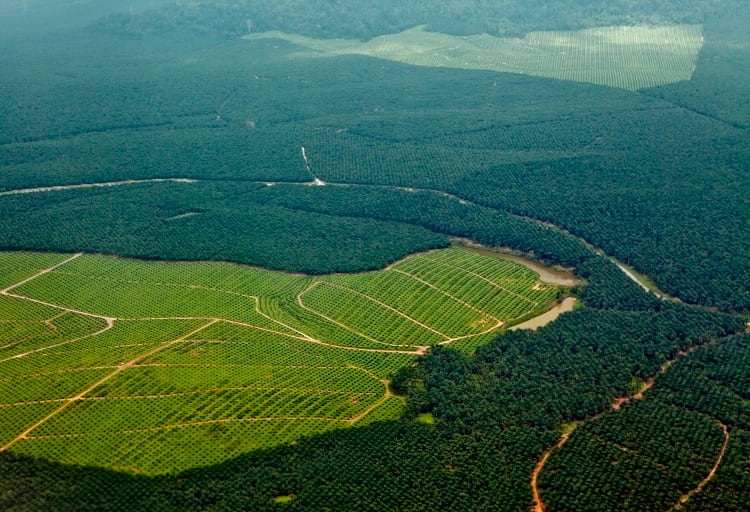Colombia is notorious for its links to coca cultivation and cocaine production. Producing more than any other country, the South American nation cultivated more than 600,000 acres of coca in 2020, with cocaine production capacity rising to over 1,000 metric tonnes.
In competition with this illicit crop is an emerging palm oil industry, which experts say is providing stability, sustainability, social development, and environmental benefits to the country.
However, contending for land and territory can create trouble for the palm oil sector, we were told at a recent webinar hosted by think tank Competere. Do the highs outweigh the lows?
Kidnapping and extortion
Cultivating oil palm in traditionally coca-dominated areas can have a number of negative impacts on the Colombian oil palm industry.
Rural development consultancy C-análisis SAS has investigated these issues in four regions where coca and oil palm are in direct competition for land: Urabá, Catatumbo, Middle Magdalena, and Tumaco.
When coca is cultivated alongside oil palm, the latter is often left with an insufficient and inexperienced workforce, according to C-análisis SAS director and founder Daniel Mauricio Rico Valencia.
“We saw that when coca crops are ripe, they provide better salaries in informal ways,” he told delegates at the event. For this reason, the sector attracts workers with agricultural experience, because “they can provide services…and get more money”.
Valencia continued: “For oil palm industries, when coca crops arrive, they start…losing a lot of talent…”
Human safety and welfare of oil palm owners and employees can also be compromised when fighting against organised crime, suggested the consultant. “One way of criminals trying to control territory is to [kidnap]. There are very sad cases of entrepreneurs of the oil palm industry that have been killed or kidnapped, or of companies that are currently and permanently under extortion systems.”
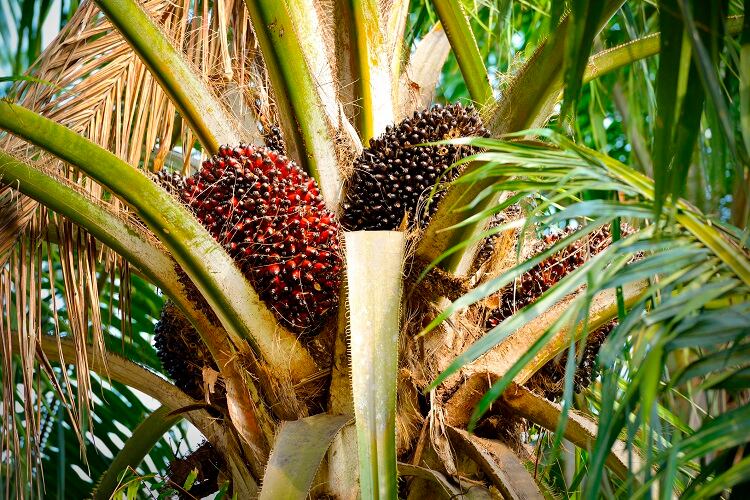
Building a palm oil industry within an illicit crop landscape can also lead to new criminal activities. Roads used to freight palm fruit can become unsafe, for example. “It becomes problematic for the freighters and creates a stigma,” said Valencia.
This makes maintaining formal economy a challenge. “In Colombia, 86% of the workforce in rural areas are on informal contracts. Maintaining formal economy in areas of high criminality is [difficult],” we were told.
Environmental and agricultural challenges
The environmental impacts of coca cultivation and cocaine production impacts all agricultural industries, and not just palm oil, according to the consultant: “The cocaine industry requires a lot of chemicals, such as potassium permanganate.”
Potassium permanganate, when combined with water or sodium permanganate, can be mixed with the dissolved coca paste to help produce cocaine.
‘Multiple’ chemicals used in cocaine production contaminate water sources that end up on agricultural land, we were told. “So having coca crops around dramatically increases environmental impacts.”
Another challenge facing agricultural industries competing with coca cultivation is government restrictions on inputs traditionally used by illicit crop growers. By limiting access to gasoline and agricultural chemicals, for example, authorities can limit cocaine production. However, many inputs – such as fertiliser – are also used by the oil palm sector.
The good news story
The growth of the oil palm sector, however, is largely a good news story. Valencia believes the oil palm industry is the sole industry to have prevented expansion of coca crop cultivation in Colombia.
Unlike the cocaine industry, the Colombian palm oil sector provides formal employment.
At palm oil operation Poligrow Colombia, for example, around 650 formal jobs have been created directly from the business. Located in Mapiripán, Poligrow is responsible for around 86% of the territory’s economy.
The development of basic infrastructure around palm oil plantations, such as schools and housing, are also benefiting communities in cultivating regions.
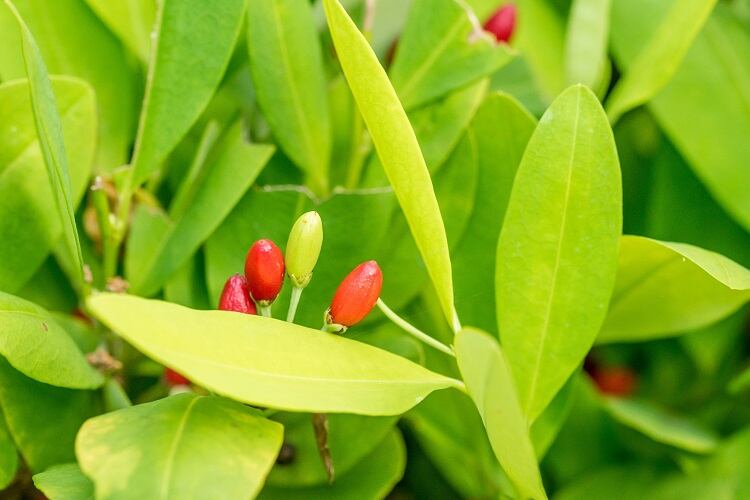
Since Poligrow set up shop in Mapiripán, for example, general director Carlo Vigna Taglianti has observed a ‘drastic’ reduction in coca cultivation. The building of schools and institutions has helped ‘maintain greater control and development’ in the region, he told delegates, as well as overall stability: “From 2009 [onwards] there were less cases of people leaving the territory.”
From an environmental standpoint, palm oil cultivation is also good news, we were told. Poligrow has been a member of the Roundtable on Sustainable Palm Oil (RSPO) for 14 years, and C-análisis’ Valencia noted he had observed greater environmental investments in regions growing oil palm, than in those that aren’t.
Workers’ perspectives
Today, Colombia is the leading palm oil producer in Latin America, and considered the fourth largest globally.
And it is not just business owners benefiting from this growing industry. Workers, too, who have transferred over from cocaine production, added first-hand perspectives to the discussion.
“I knew my territory had great opportunities, but everything was blocked because of illicit traffic. Thanks to the development triggered by palm oil cultivation, we can now have hope and we can start seizing the opportunities offered by our lands,” said Mapiripán-born Diego Alejandro Londoño.
Elva Molina, a farmer from Tibu, told delegates palm oil cultivation has changed her family’s life. “Many people started changing illicit crops with palm oil, which is transparent, clean and not dangerous for water sources.
“Working in a plantation has allowed me to improve my livelihood, we all now have the opportunity to go to university, we have social security and we have learned a proper job.”


